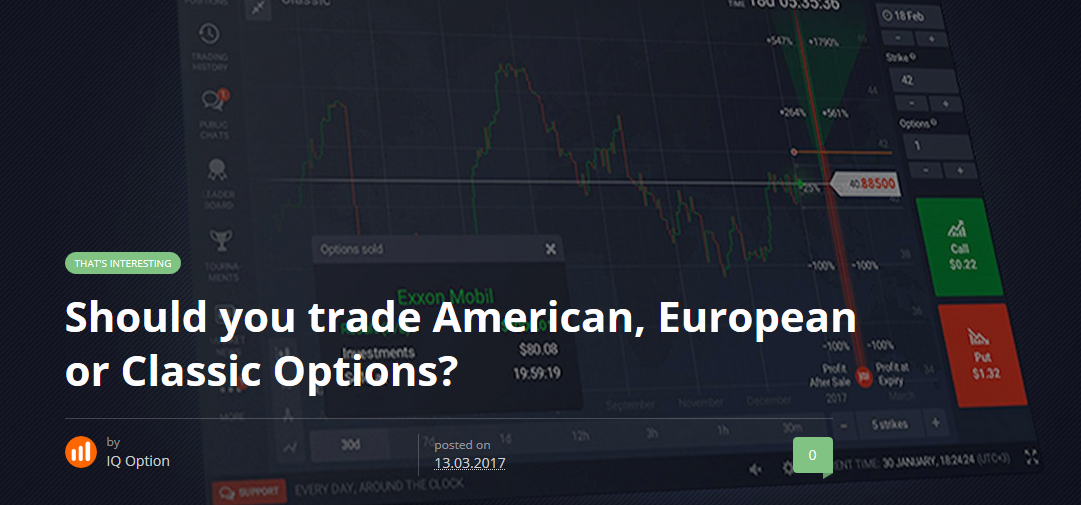Should you trade American, European or Classic Options?
The abundance of choice among various kinds of options can get a trader torn up. How can one decide which trading instrument is right for them? No worries: we’ve prepared a comprehensive guide that will help you make the right choice.
Back to basics
Let’s start from the beginning by defining what an option in its general sense is:
An option is a contract which gives the holder the right (but not the obligation) to buy or sell a unit of an underlying asset at a specified price on a specified date.
An option with the right to buy at a specific price is referred to as a Call, while an option to sell is known as a Put. The basic goal, however, is the same for both types: to profit from the difference between the buying and the selling price.
Options can further be divided into various styles (also known as ‘families’), with the vast majority falling under either European or American style.
European vs American options
These two option types share many similar characteristic, but it’s their differences that matter most:
The right to exercise
American-style options allow the holder to exercise the contract at any point in time before the option expires, while European options can only be executed only upon their maturity. This is the key difference between the two types, and it’s also one that affects their prices. European options often cost less than their American counterparts, because the later allow for more flexibility.
Types of assets
Nearly all stock and equity options are American options, while indexes are generally represented by European options.
Traditional vs Classic Options
The main point of distinction we have to make right off the bat is that both American and European options are “traditional” types in a sense that they are physical contracts, while Classic Options are contracts for difference (“CFDs”). Both are derivative trading instruments, but physical contracts imply that a trader actually buys and sells the underlying assets and a CFD allows to simply profit from the extent of the price movement and a contract can’t be exercised to acquire actual assets.
Now that we got that out of the way, let’s compare traditional and classic options on 3 standard parameters:
|
Traditional Options |
Classic Options |
|
| Contract size | Min. 100 options | Min. 1 option |
| Commissions | All options are subject to commissions and fees by brokers. | No commission or fees when trading with IQ Option. |
| Refund | No refund for the cost of the contract even if it was never executed | Client can get his investment back by closing the position at a break-even level before the contract expires. |
As you can probably tell, Classic Options have a number of advantages over both American and European options. But their biggest advantage still is accessibility: while American and European options can only be traded on the large stock exchanges, Classic Options are available to everyone through the IQ Option trading platform.




